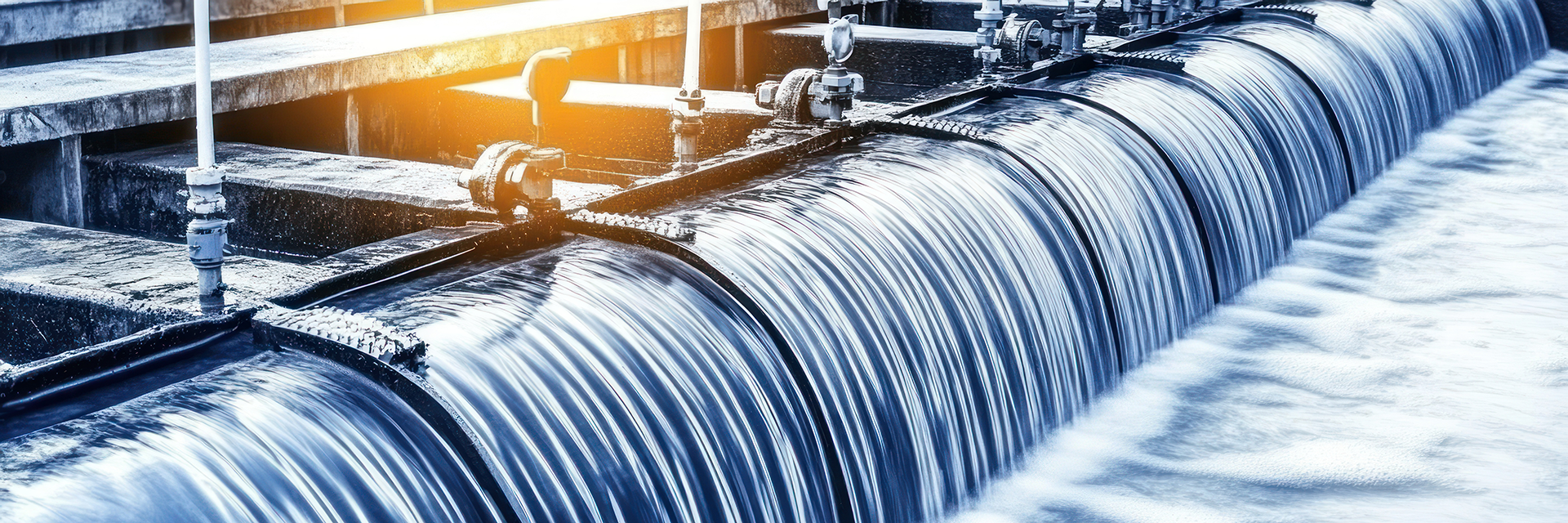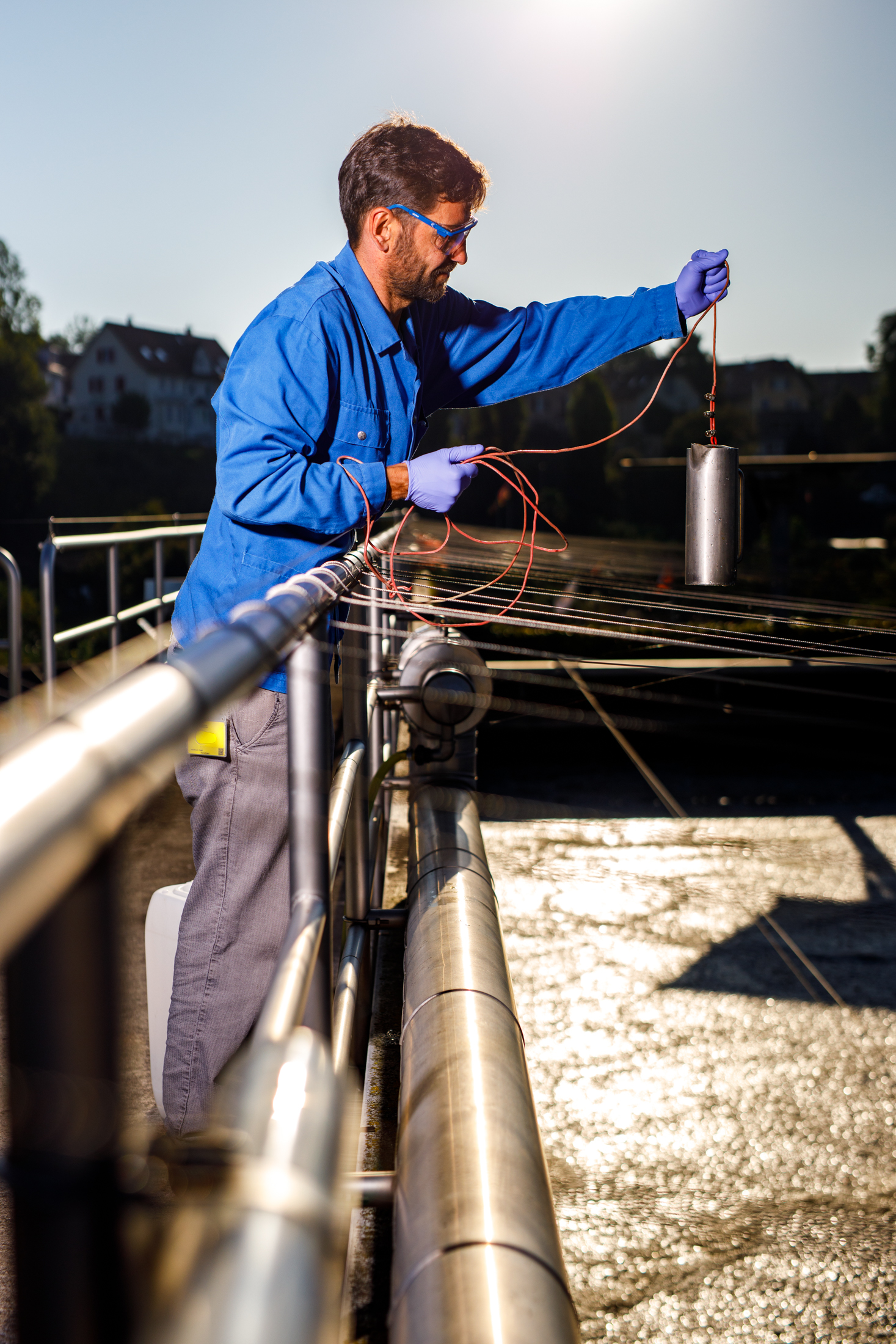How well do industrial companies know their wastewaters?
A tool developed by Miriam Langer’s team is helping industry better answer this question.
The metal, pharmaceutical, chemical, cleaning and waste management industries all need to understand their wastewater and comply with environmental norms. While chemical analyses can indicate the presence and concentration of targeted substances, they cannot predict the responses of organisms or cells to a combination of these substances. Nor do chemical analyses reveal whether unknown substances, residues and metabolites are present if they are not specifically searched for.
Taking inspiration from gaps identified in an industry workshop, Prof. Dr. Miriam Langer and Research Associate Dr. Xenia Klaus first collected national and international knowledge about industrial wastewater screening with bioassays. To answer the challenges that companies face, they came up with the idea to create a panel of biological tests.
Their tool, ABIScreen, combines a time-efficient biodegradation test with a battery of robust, broad-based bioassays, including toxicity to the bacteria in the wastewater treatment plant, and effects on luminous bacteria, daphnia and algae. If desired, an Ames-test can be included to determine whether substances in the wastewater have mutagenic potential.
ABIScreen is currently being deployed in five Swiss cantons. Companies collect samples of their wastewater from a combined waste stream or a sub-stream of interest. The flasks are picked up by the Institute for Ecopreneurship and analysed in its labs, with the cost covered by the Federal Office for the Environment and the Swiss cantons involved in the project. Langer’s team provides a readout of key parameters in a comprehensible report, which the company can use to both treat and prevent problems – or in many cases, confirm the success of their wastewater treatment performance.
Since the project began in 2023, over 50 companies have participated. They value the information they receive about their wastewater, the confidentiality of the process and the ability to take matters into their own hands. Some have requested follow-up screening of sub-streams so they can zero in on specific issues. The contact between members of Langer’s team and industry helps stimulate dialogue.
“We’re very happy with what we’ve achieved” says Klaus. “Companies have realised that performing bioassays is not as long, complex or expensive as they might think, and it complements chemical analysis nicely. The project is encouraging them to measure more often and check that their treatment processes are working.”
Industry clients and government agencies agree. “In future, ABIScreen could help us to identify critical substances in our wastewater more easily and eliminate them at source wherever possible” says Christine Wegmann from dsm-firmenich.
“The combination of degradability tests and bioassays in ABIScreen enables a holistic characterisation of a specific wastewater in addition to chemical analyses and simultaneous evaluation of the company’s own wastewater treatment. Tracing toxic and non-biodegradable substances in wastewater back to their source helps companies to find out about the required state-of-the-art techniques and therefore represents added value” says Saskia Zimmermann-Steffens, Water Division, Federal Office for the Environment.
In the last phase of the project, Langer’s team compiled biotest results anonymously in a database. Live since 2025, the database can help industry decide whether to review their wastewater treatment processes. The data is accessible to participating companies upon request, allowing them to compare metrics within their industry sector.
As more companies see value in these tests and the volume of testing increases, the FHNW School of Life Sciences plans to transfer the knowhow to private sector labs, helping them expand their service offerings.
“This project truly illustrates the value of the FHNW’s applied research expertise for Swiss industry and government, and is an active contribution to future good water quality” says Langer.
Key facts | |
|---|---|
Community: | Switzerland (Cantons AG, BL, GE, VD, ZH) |
Water system: | Industrial wastewater |
Partners: | Verband Schweizer Abwasser- und Gewässerschutzfachleute |
Financing: | Federal Office for the Environment (FOEN) Switzerland; Cantons of Argau, Basellandschaft, Geneva, Vaud and Zurich |

